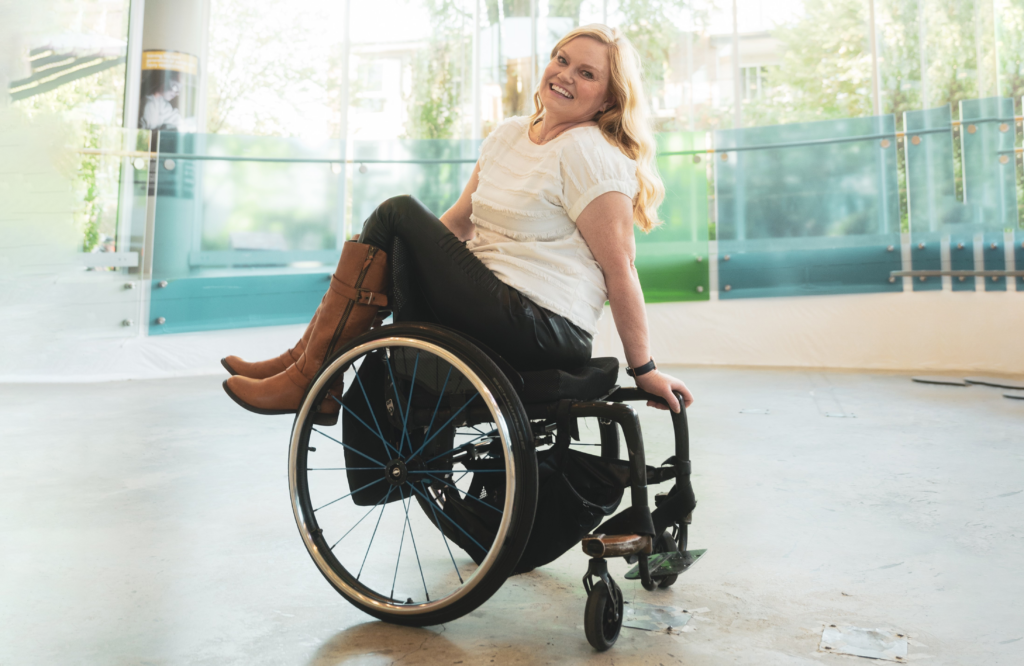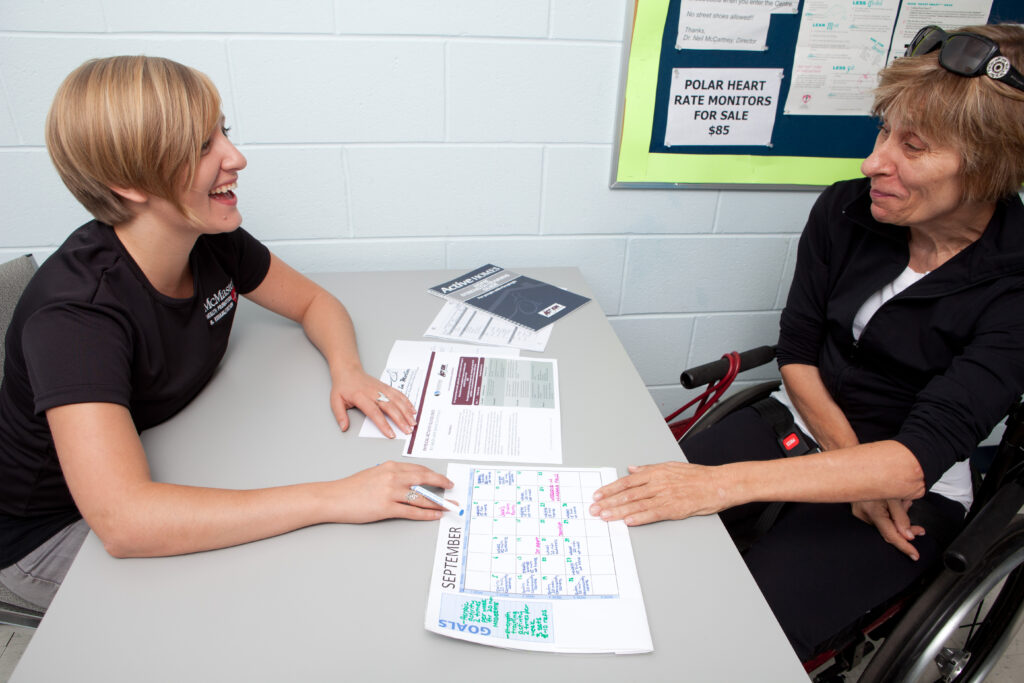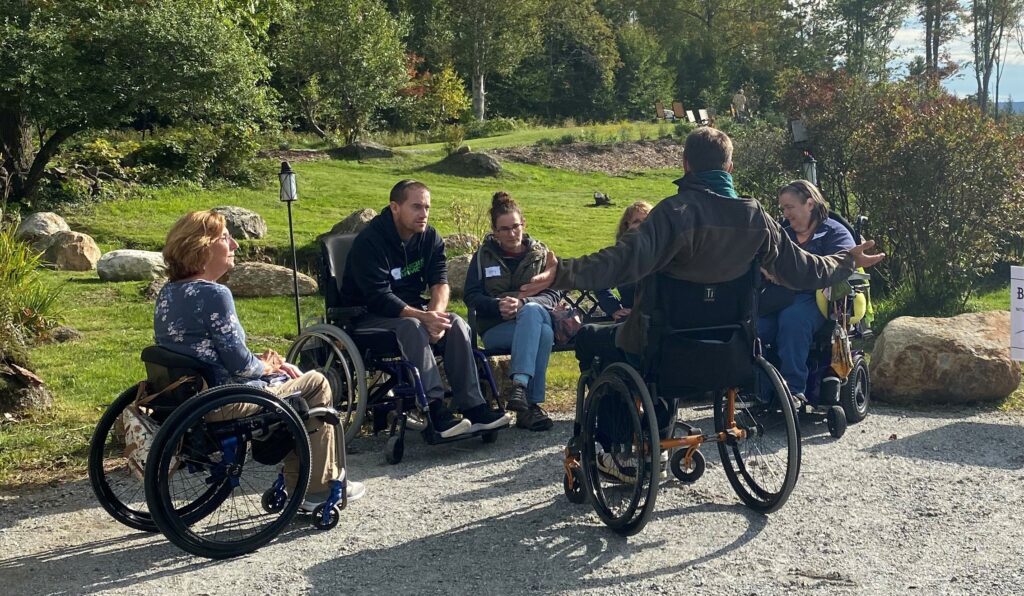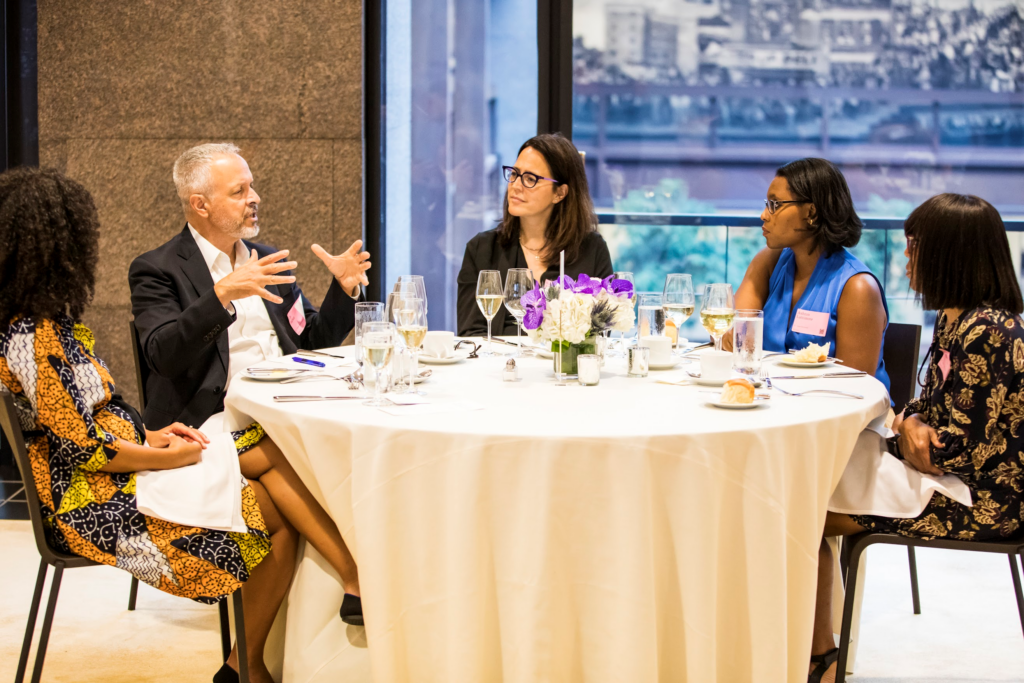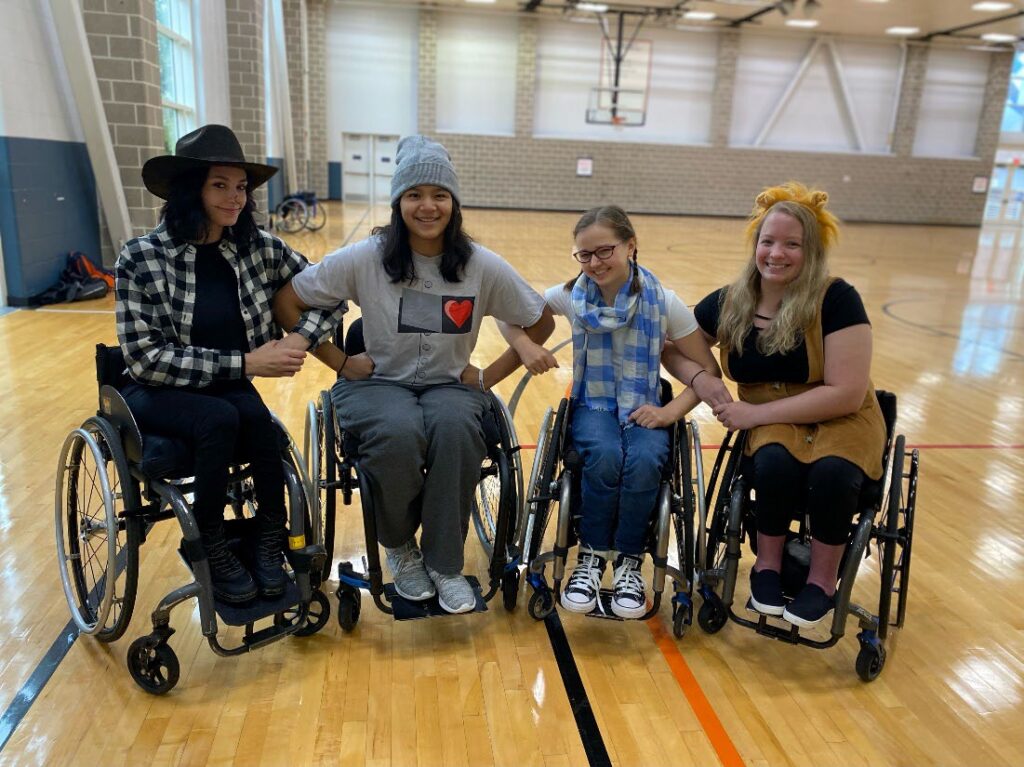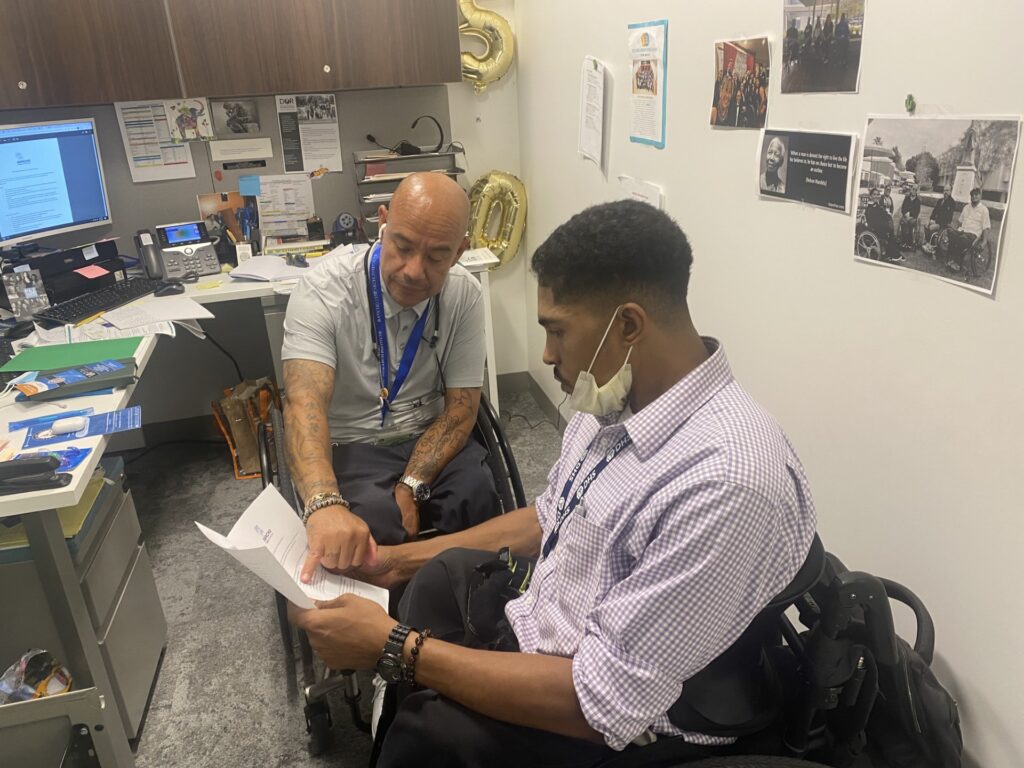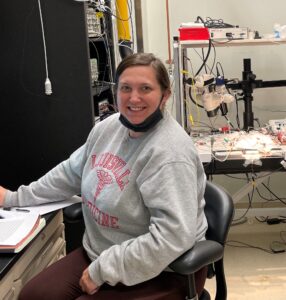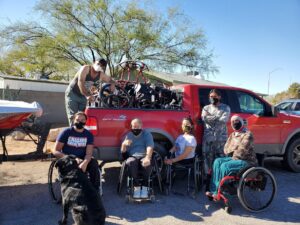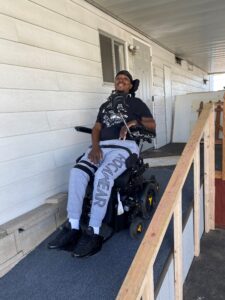The Craig H. Neilsen Visionary Prize honors the legacy of our Founder by shining a spotlight on the wide range of individuals who embody the values he exemplified during his lifetime with their work to make the world a better place for people living with spinal cord injuries. This year’s Craig H. Neilsen Visionary Prize recipients are Victor Calise, Carmen Daniels Jones, and Vincent Pierce. Each will receive an unrestricted $1 million award.
Launched in 2020, we are proud to celebrate individuals across a broad spectrum of expertise that includes artists, athletes, advocates, and researchers, as well as healthcare workers. Since its inception, the Foundation has awarded the Visionary Prize to 12 people across the U.S. and Canada.
Like our past awardees, Victor, Carmen, and Vincent have been an inspiration to others—showing determination, boldness, and a willingness to think bigger than themselves. We applaud their achievements. Here is a little information about the 2023 recipients of the Craig H. Neilsen Visionary Prize:
Victor Calise
As the Director of Belonging Culture, Equity and Inclusion at Walmart, Victor helps integrate disability into every aspect of the company—from employment to the accessible shopping experience. Prior to his time at Walmart, he spent over two decades in public service, culminating in his role as Commissioner of the New York City Mayor’s Office for People with Disabilities from 2012–2022. A longtime disability advocate, Victor advised three mayors and agency partners on accessibility issues and chaired the Accessibility Committee of the City’s Building Code.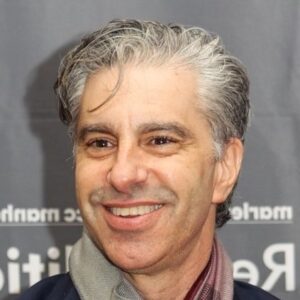
Following graduation in 2002, Victor became a consultant to the NYC 2012 Olympic and Paralympic Bid, working with the U.S. Olympic/Paralympic Committee and International Paralympic Committee. He also served as the Director of Special Projects and Director of Sports Marketing at United Spinal Association. Victor began his city service career in 2006 with the New York City Department of Parks and Recreation, working with the Capital Division and leading efforts to make one of the world’s largest and most complex parks systems more accessible by ensuring accessibility standards met and exceeded compliance in construction standards and managing facilities.
His leadership led to the creation of the NYC: ATWORK employment initiative, which directly connects individuals with disabilities seeking employment and businesses with open roles. He was appointed to his current position at Walmart in March 2022, and works at the company’s new Accessibility Center of Excellence.
An avid athlete, he competed in the 1998 Paralympic Games in Nagano, Japan as a member of the first U.S. national sled hockey team. Victor graduated from St. John’s University with a degree in sports management and received a master’s degree in urban affairs from The City University of New York. A native New Yorker, he lives on the Upper West Side with his wife, Susan, and two daughters.
Carmen Daniels Jones
Carmen is the President & Founder of Solutions Marketing Group (SMG). A passionate executive, she has over 20 years of experience in marketing, partnership development, diversity and inclusion, and community engagement.
In her work at SMG, which she founded in 1999, Carmen advises companies on the viability and economic vitality of the disability market and positions them as inclusive industry leaders. She drives a passionate and informed conversation around the needs and desires of the disability community.
She began her career at The Peninsula Center for Independent Living, where she worked with people with a range of disabilities. Carmen also served as Vice President of Marketing at Evan Kemp Associates, Inc., a Washington, D.C.-based medical equipment and supplies company owned and operated by people with disabilities.
Carmen served at the U.S. Department of Agriculture (USDA) as an appointee of the Obama Administration. There, she fostered relationships with small businesses and socially disadvantaged farmers throughout the rural south. She was ultimately named the Director of the USDA’s Office of Small & Disadvantaged Business Utilization. Carmen has also worked with global brands, including AT&T, Bank of America, and JPMorgan Chase & Co. As of March 2023, she has been a member of President Biden’s Architectural and Transportation Barriers Compliance Access Board. She also serves on the boards of the United Spinal Association and the World Institute on Disability.
Carmen graduated from Hampton College in Virginia with a marketing degree and now lives in Metro Atlanta, Georgia.
Vincent Pierce
Music producer, poet, and community organizer, Vincent is the director of the arts-and-justice nonprofit Open Doors—a collective of “disabled artists, nursing home residents, and allies.” As part of this organization, he travels around New York sharing his poetry and lived experience to inspire and educate others.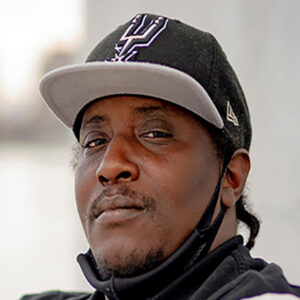
As a teen, Vincent moved to North Carolina, where he studied music and played on multiple basketball teams, before moving back to New York in his early twenties. He turned to poetry to share his story and produced his first album, Open Doors Reality Poets Vol.1, in 2019, with a grant from the Center for Cultural Innovation. His poetry and writings are featured in the book Wheeling & Healing: A Poetry Anthology. With a grant from the Center for Cultural Innovation, Vincent also founded the music program ZING! The School for Composing, which aims to give under-served youth in his neighborhood a recording studio safe space.
In 2022, he was recognized with the New Mobility People of the Year award as a member of the Open Doors Reality Poets—a group of gun violence survivors working to uplift youngsters. Vincent also features in the award-winning new documentary Fire Through Dry Grass, which chronicles the Reality Poets and their nursing home experiences during the COVID pandemic.
In 2020, Vincent founded #NursingHomeLivesMatter, an initiative aimed at protecting the lives and freedoms of the residents at his Roosevelt Island nursing home. He now hopes to take the movement, which strives for a healthcare system that protects, respects, and cares for people of color in long-term care, national. He became the only nursing home resident to speak before the New York State Hearing on Residential Healthcare Facilities and COVID-19.
